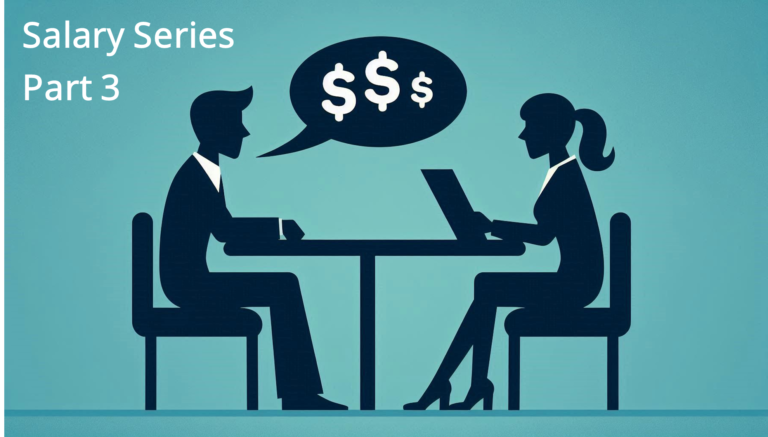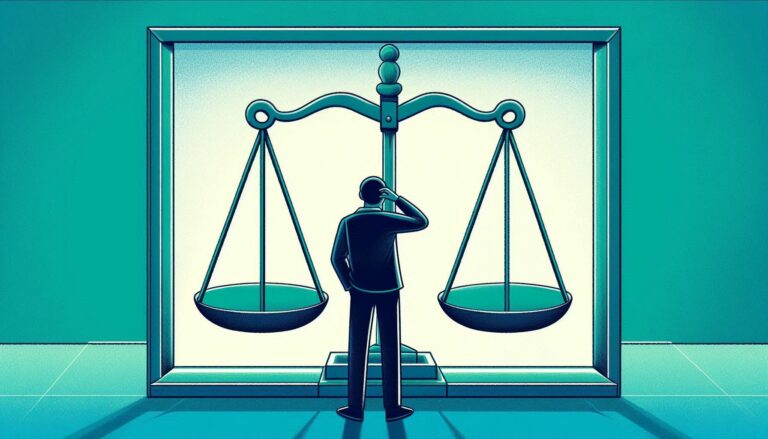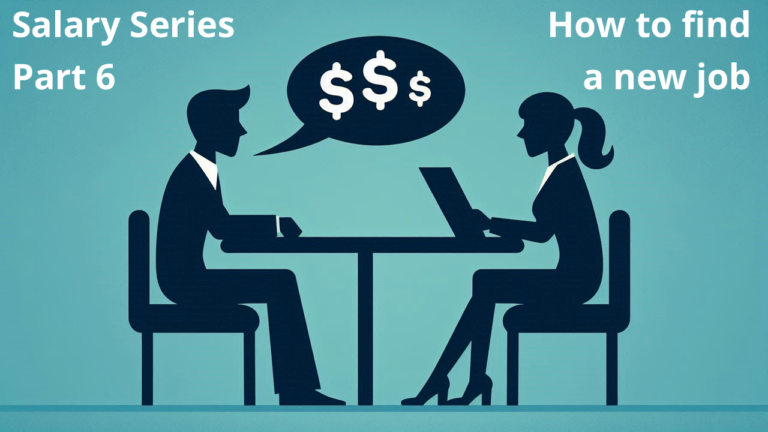“Over the long term, the average person who constantly puts themselves in a good position beats the genius who finds themselves in a poor position
Shane Parrish
…
One reason why the best in the world make consistently good decisions is they rarely find themselves forced into a decision by circumstances. They almost always operate from a position of strength”
Have you ever noticed that most successful people seem to always be in the right place at the right time, be luckier than others, always make the right decisions, or achieve positive outcomes with minimal effort?
Is it luck/serendipity, or is there something common across successful people that breeds even more success and good fortune?
What are they doing right? What’s their secret?
They operate from a position of strength.
What does operating from a position of strength mean?
According to Merriam-Webster, “position of strength” means:
A position that gives an advantage
It means that whatever decisions you make, actions you take, or even just how you live your daily life, is predicated on ensuring you have an advantage or, at a minimum, you are not at a disadvantage.
Why should you operate from a position of strength?
- Freedom and Flexibility. The world is your oyster when you have built multiple advantages around you based on a strong foundation.
- You uncover more opportunities and have the flexibility of more options to choose from. It’s even possible that some of these options allow you to play a different or even better metagame.
- Better decisions. You’re not pressured to make a rash decision based on limited options.
- You have the opportunity to make decisions on your terms. When you make choices on your terms, you have the time and space to think properly and have more options to choose from. You think strategically and plan before making moves.
- Exponential returns. When you have the freedom and flexibility, you make better choices.
- Ever noticed how you improve one area of your life, and other areas also start improving? It’s not a mistake. Strength builds upon strength.
- For example, you decide to sleep better, which results in a fresher mind, better decision-making, better work performance, better career progression, and so on.
- In personal finance, an example is reducing a drinking habit, leading to financial and time savings, leading to an emergency fund and subsequently on financial planning, leading to investments, leading to a comfortable retirement.
- Sidenote: The slippery slope is a similar but inverse concept. This month, you spend a little bit more than you earn, leading to ongoing debt, leading to ongoing inability to save, leading to stress, leading to poor work performance, leading to feelings of entrapment, etc.
- Mitigated risks. Very few problems or risks surprise or put you in a worse position. You have accounted for them as part of strengthening your position
- You recover better with a strong foundation. Unlike weak positions, you minimise downside outcomes, which results in a weaker position.
- As a result, you don’t worry about problems and risks; you fortify and prepare for them.
- Reduced mental load and stress. You see your position and the world around you differently.
- Problems you encounter are not insurmountable and have fewer negative consequences. For example, living paycheck to paycheck creates stress. Having financial reserves lowers anxiety and improves overall well-being.
- With increased clarity and options, making decisions requires less effort. You feel you have control over your destiny, as you have power and leverage.
It’s like playing snooker. Amateurs focus on sinking the first ball into a hole. Experts will plan and execute a shot with the right speed and angle so that the cue ball stops in a position that lines up the next shot easily. World-class players do the same, but plan 3-4 or even more shots ahead. The casual spectator will think the professional player is always lucky, that after each shot, the cue ball stops in such a good position for the next shot. And the next shot. And the one after that. Trust me, it’s not luck.
You know when people make sub-optimal or even bad life or financial decisions, they were quite likely operating from a weak position. Unfortunately, those decisions or actions put them in an even weaker position. It’s that slippery slope. It’s not easy climbing out of that hole. When you think about it, their decisions and actions may not seem so irrational or crazy anymore (as per Chapter 1 of Morgan Housel’s Psychology of Money, “No One’s Crazy”)
What are examples of a position of strength in personal finance and career?
- Building an emergency fund so you don’t have to go into debt when large unforeseen expenses occur, or being able to take the time to only apply for the best-fit companies if you lose your job
- Having multiple job offers lined up, so you can negotiate compensation terms and are prepared to walk away
- Gathering knowledge and a deep understanding of investments before making the decision to invest (e.g. not going in blindly with the latest investment trend)
- Developing a financial plan that helps keep you on track to your goals, especially during tough times and economic crises
- Staying fit and healthy so your mind and body can excel at work and minimise medical expenses
- Executing a 6-12 month long plan to get a raise/promotion, consisting of having preliminary discussions with your supervisor, performing above pre-agreed explicit KPIs, collecting data points and securing advocates before the actual performance review discussions.
- Buying insurance to bolster your position of strength and manage your cash flow should unforeseen large medical expenses occur
- Taking the time to gather extensive research on potential properties to purchase, and being patient enough to buy when the time is right, i.e. when it’s a buyer’s market and sellers are desperate
- Having diversified income streams or side hustles so you don’t feel handcuffed to your current or future jobs, which may not have
- Spreading multiple big purchases / life-changing decisions across a longer time period instead of incurring them in quick succession, i.e. marriage, buying a property and starting a family, all in 1-2 years
Don’t successful people take risks?
They do. However, they take careful consideration of all factors and only accept calculated risks once they’ve put themselves in the best possible position before taking action. Even then, on most occasions, they’re not going to put all their chips into one basket.
Bill Gates wasn’t a college dropout. He didn’t even quit Harvard. He took a leave of absence from Harvard and knew that if Microsoft failed, he could resume his studies at Harvard. Also, he already had a sizeable financial position from his businesses that he had run since high school, and Microsoft was really taking off. So he took time off, concentrated on Microsoft, and never had the time to go back to finish his degree. Mark Zuckerberg did the same thing with Facebook, he also took a leave of absence from Harvard as Facebook was gaining traction.
One way to do this is to implement a barbell strategy. A barbell is heavy on opposing ends with weights, and light in the middle. A barbell strategy is a strategy where if you choose to take risks, you also hedge yourself by allocating time/resources/optionality on the safer opposing end. An example of this in personal finances is heavily investing in safe assets like a money market fund or fixed deposits if you want to put a significant portion of your portfolio in a high-risk asset class like crypto.
Only in rare circumstances do the most successful people risk it all and eventually win. This was because they were in a hole with nothing to lose. If you have nothing to lose, is it actually risky? That’s not risk, that’s just taking action with “minimal consequences” as there is little to nothing at stake. Risk requires the probability of a negative impact or consequence.
How do you operate from a position of strength?
- Before you make decisions or take actions, STOP. Take a pause and give yourself space. Don’t make sudden, irrational choices, which are likely impulsive, emotional default reactions (read Clear Thinking by Shane Parrish to understand more).
- Assess the situation and ask yourself, “Am I currently in a position of strength or weakness?”. What don’t you understand about the situation? What are the gaps? Is ego and emotions overpowering your rational thinking? Do you feel powerless, lacking in options or the ability to control the decision or choose a better option?
- Don’t be lazy, do the (hard) work. Strategise how you can improve your position by increasing buffers/minimising risk, gaining leverage or capital. From my experience, this is where people trip and fall. You need to think clearly (again, Clear Thinking by Shane Parrish can help)
- Get a professional second opinion. Consult a financial advisor. You need to make sure your emotional defaults or other biases are not clouding your judgment, or you may still have some blind spots you’re not aware of.
- Always create optionality for yourself, so you can dictate your own terms and make your choices instead of being forced into choices
- Be patient. It can take time to get to a position of strength. Bide your time, ensure you have done all you can to be in the best position possible.
- Have a bias to action. Don’t let procrastination and analysis paralysis stop you from doing the real work after thinking, which is doing.
- If all else fails, choose to walk away. Always ask yourself if you’re operating from a position of strength. If you aren’t, don’t play. Delay, defer, delegate, come back stronger or avoid playing that metagame or choose another.
Meta levels of positions of strength
Like anything in life and personal finance, there are many metalevels and metagames in approaching a position of strength. Is it about managing foundational risks? Is it getting literate about personal finance to make informed decisions? Or is it even about not playing that particular game, but rather a different game?
For example, when managing the risk of large medical expenses, you might think the answer is to just buy insurance. However, there are different metalevels (approaches), such as
- Foundational metagame: You engage an insurance agent to assist you with purchasing a medical insurance policy (Basic medical expense risk coverage)
- PF literate metagame: You do your research and learn about medical insurance so that you’re able to pick an optimum medical insurance policy for your needs. (Extracting value for money)
- Advanced metagame: You earn a sizeable enough income that the cost of medical insurance doesn’t matter. You just get the best of the best medical insurance. (Maximising opportunities)
- Top metagame: You obtain significant wealth that you could afford anything, and as a result, whether you have insurance or not doesn’t even matter. You could fly in the best doctor and hire a private nurse to look after you in your own home. You dictate your own terms
- Alternate metagame: There is an option to just not play the medical insurance game. What might that look like:
- Rely on public healthcare: Some (even affluent) have the view that public healthcare is “better” than private healthcare. Due to the sheer volume of patients and variety of circumstances, doctors in public healthcare arguably have more experience and may provide better diagnoses and treatments.
- Stay as healthy as possible: The healthier you are, the lower your medical expenses and need for medical treatments. This only works to an extent, but has a significant effect on preventing many non-communicable diseases.
Wrapping up
Remember, the key is to never make decisions or take actions when you’re in a weak position or lack confidence. Ideally, you would have done the work beforehand so that even if something unfortunate arises, you’re already in a position of strength. The impact is then minimal, you’re able to overcome it and bounce back quickly.
Similar to the magic of compounding, operating from a position of strength creates positive outcomes which builds even more strength, creating exponential results.
But what do you do if you’re already in a position of weakness, spiralling out of control, and need to find a way out? You develop a laser focus on priorities, or reframe the situation to become a win-win (which I’ll write about in my next posts)



